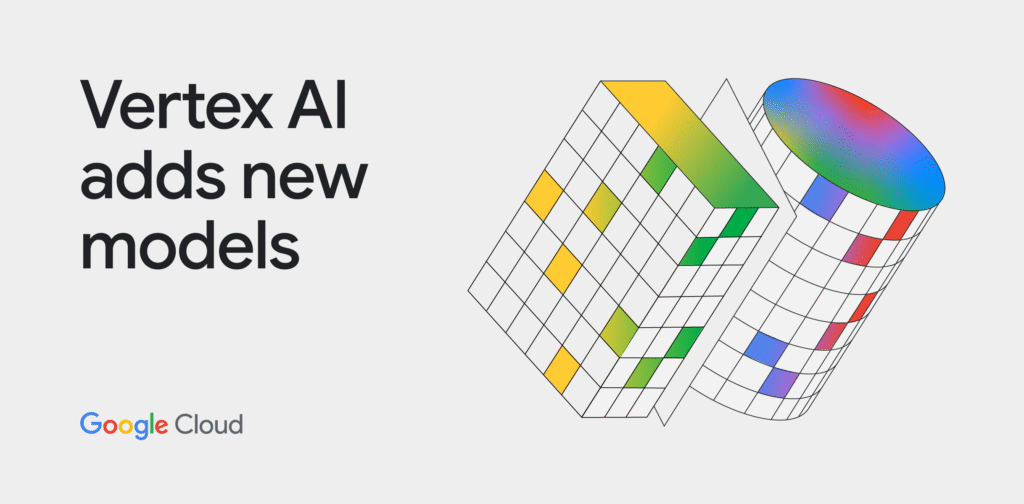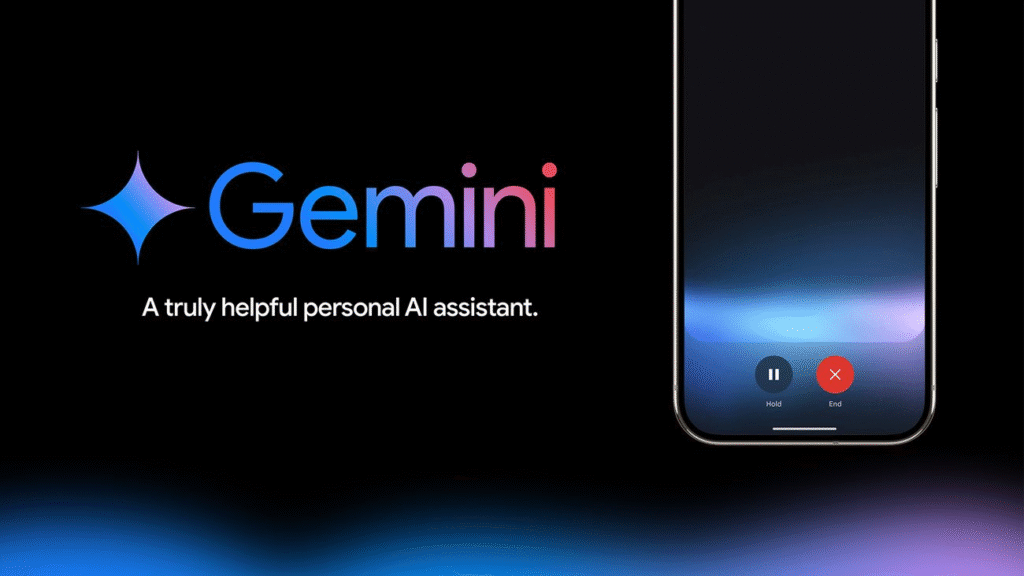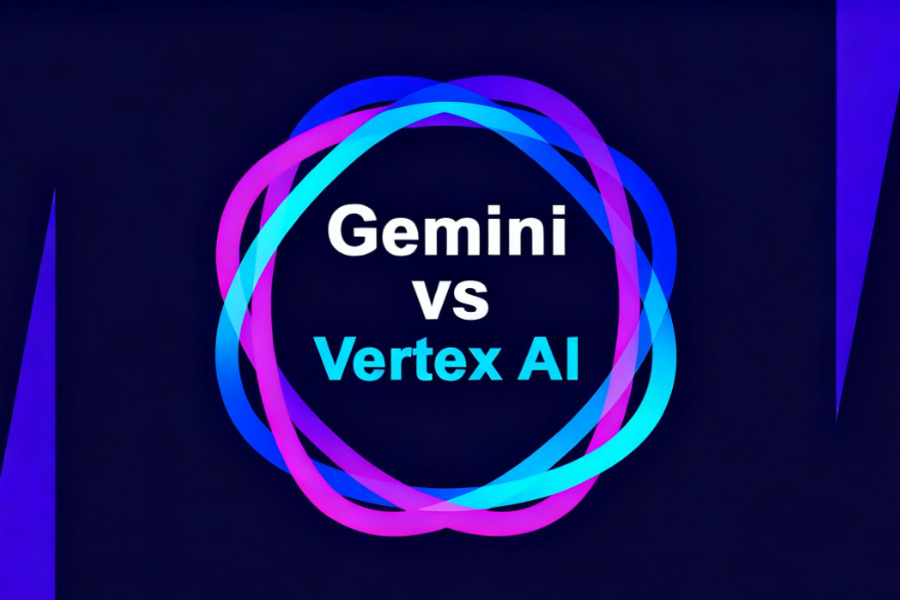Do you need to construct a custom AI solution from the ground up, or are you looking for an intelligent assistant to supercharge your existing workflow? This comprehensive Vertex AI vs Gemini comparison cuts through the technical jargon to deliver the clarity you need.
We’re breaking down Google’s AI universe into understandable terms: think of it as the battle between the ultimate workshop (Vertex AI) and the brilliant brain (Gemini). Get ready to discover which solution deserves a spot in your tech toolkit.
What is Vertex AI?

Imagine walking into the most advanced workshop ever built, where every tool for creating artificial intelligence sits within arm’s reach. That’s the experience Google Vertex AI delivers—a unified platform that brings Google Cloud’s machine learning capabilities under one roof. This isn’t just another AI tool; it’s a complete environment where data scientists and ML engineers can manage the entire machine learning lifecycle without jumping between disconnected services.
Vertex AI shines when you need to build something truly custom. Whether you’re starting with raw data or leveraging pre-trained models, this platform provides the flexibility and scalability serious AI projects demand.
It’s where ambitious AI visions transform into production-ready applications through a carefully orchestrated process of data preparation, model training, deployment, and continuous monitoring.
Key Features of Vertex AI
- AutoML Capabilities: A low-code/no-code route to AI, allowing users to train high-quality models for tabular data, images, text, and video without writing a single line of machine learning code. It democratizes the training process.
- Comprehensive MLOps Tooling: This is the platform’s backbone for production-readiness. It provides a complete suite of tools for robust model deployment, continuous monitoring (to prevent model drift), versioning, and governance, managing the model throughout its entire lifecycle.
- Deep Google Cloud Integration: Vertex AI is a native Google Cloud service, meaning it’s seamlessly connected with power tools like BigQuery (for massive data analysis), Dataproc, and Cloud Storage. This allows you to leverage Google Cloud’s immense infrastructure and existing data seamlessly.
What is Gemini?

If Vertex AI represents the workshop, then Google Gemini is the masterpiece created within it—a state-of-the-art suite of multimodal large language models designed to understand and generate human-like responses across text, code, audio, images, and video. Gemini isn’t about building new models from scratch; it’s about leveraging pre-trained intelligence to enhance your existing tools and workflows.
What makes Gemini particularly remarkable is its ability to grasp nuanced instructions and deliver coherent, context-aware responses. It’s the AI assistant that integrates directly into your daily applications, making everything from coding to content creation smarter and more efficient. Whether you’re a developer seeking coding assistance or a business professional needing help with documentation, Gemini adapts to your needs.
Read More: Google Launches Gemini Enterprise
Key Features of Gemini
- Code Completion and Generation: A developer’s superpower. Gemini for Google Cloud provides intelligent code completion, suggests relevant snippets in context, and can generate entire code blocks from simple natural language descriptions.
- Application and Infrastructure Operations: Acts as an expert guide for managing complex cloud applications and infrastructure, offering best-practice suggestions and automating many routine, tedious tasks.
- Conversational Assistance & Knowledge Discovery: Within Google Cloud, it answers technical questions and provides guidance through intuitive, natural language conversations, making complex documentation accessible to everyone.
- Smart Writing and Creativity: Gemini for Google Workspace is your productivity partner, assisting in drafting documents in Docs, summarizing emails in Gmail, and generating first drafts or custom visuals in Slides.
- Enhanced Data Analysis: In tools like Google Sheets and BigQuery, Gemini helps users classify data, generate reports, and create custom analysis plans far more quickly and effectively than manual methods.
Vertex AI vs Gemini: An In-Depth Comparison
While both represent crucial components of Google’s AI strategy, understanding their distinct roles is essential for making the right choice. The Vertex AI versus Gemini decision ultimately comes down to whether you need a construction site or a finished intelligent tool.
1. Core Function
Gemini primarily functions as a sophisticated large language model suite focused on natural language processing and multimodal reasoning. It excels at understanding context, generating human-like text, assisting with coding tasks, and serving as a digital assistant. Think of it as the finished product—the intelligent brain you can immediately put to work.
Vertex AI operates as a comprehensive AI and ML development platform supporting the entire model lifecycle. It’s the construction site where you build, train, customize, and deploy models—including Gemini models—for specific business needs. This distinction in the Vertex AI and Gemini comparison highlights their complementary nature: one provides the intelligence, the other provides the infrastructure.
2. Complexity Spectrum
When evaluating Vertex AI vs Gemini in terms of complexity, Vertex AI clearly demands more technical expertise. It’s designed for data scientists and ML engineers who need granular control over model configuration, infrastructure setup, and performance optimization. The platform expects you to understand MLOps pipelines and have specific outcomes in mind.
Gemini, in contrast, offers a much more accessible experience for end-users. Through simple API calls or integrated features within Google products, you can leverage cutting-edge AI without deep technical knowledge. The complexity remains hidden behind user-friendly interfaces, making advanced AI capabilities available to developers, business users, and creatives alike.
3. Practical Applications
The difference between Vertex AI and Gemini becomes particularly evident when examining their real-world applications. Vertex AI serves organizations building custom AI solutions for specific business challenges—think fraud detection systems, customer segmentation models, or predictive maintenance algorithms. It’s the choice when you need tailored solutions with complete control over the AI lifecycle.
Gemini excels at enhancing productivity and cognitive tasks across existing workflows. Its applications range from code generation and cloud operations management to research acceleration and content creation within Google Workspace. If you need immediate AI assistance within tools you already use, Gemini delivers value from day one.
4. Integration
Another key distinction in our Vertex AI versus Gemini analysis involves their integration patterns. Vertex AI focuses on deep integration with Google Cloud infrastructure services like BigQuery and Cloud Storage. It’s designed to work with enterprise data and existing cloud resources, making it ideal for organizations heavily invested in the Google Cloud ecosystem.
Gemini prioritizes seamless integration within Google Cloud and Google Workspace products. It provides context-aware assistance directly within Gmail, Docs, Meet, and development environments, embedding AI intelligence exactly where work happens. This workflow-centric approach minimizes friction and maximizes productivity.
5. Pricing
The financial aspect of the Vertex AI vs Gemini decision reveals another important distinction. Vertex AI typically follows a pay-as-you-go model based on consumption of Google Cloud resources—compute hours for training and serving, storage costs, and API calls. Your expenses directly correlate with the scale and complexity of your custom models and infrastructure.
Gemini often employs subscription-based pricing (within Google Workspace plans) or token-based models for API access. Costs generally relate to usage volume rather than underlying infrastructure, making budgeting more predictable for specific AI capabilities rather than entire development platforms.
Conclusion on Vertex AI vs Gemini
Both Google Gemini and Vertex AI represent powerful AI solutions, but they serve fundamentally different purposes. Your decision in the Vertex AI vs Gemini dilemma should align with your specific needs, technical capabilities, and business objectives.
Choose Vertex AI if you’re part of an organization that needs to build, train, and deploy custom machine learning models at scale. This platform suits ML engineers, data scientists, and companies requiring full control over the AI lifecycle and deep integration with Google Cloud infrastructure. It’s the industrial-grade solution for creating tailored AI applications.
Opt for Gemini if you’re a developer, business user, or organization looking to immediately leverage state-of-the-art generative AI capabilities. Gemini delivers value through seamless integration into existing workflows, enhancing productivity across Google Cloud and Workspace environments without demanding extensive ML infrastructure management.



